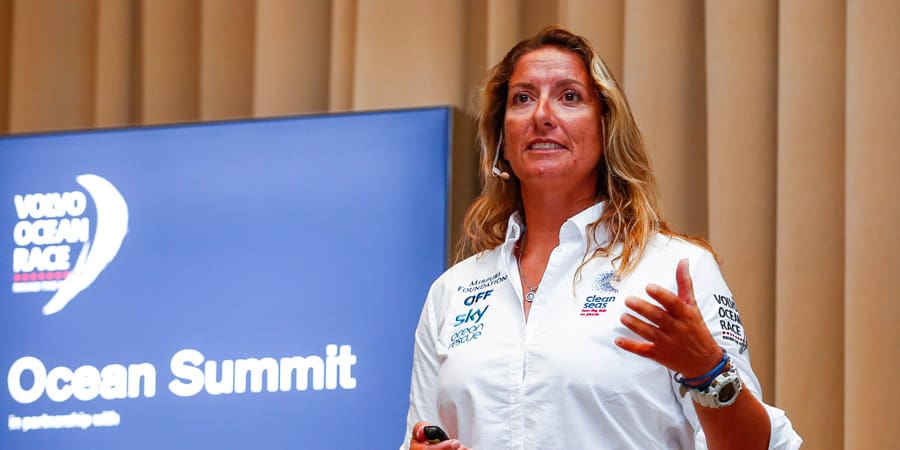Millions of tiny particles of plastic have been detected in European waters in ground breaking scientific research conducted as part of the Volvo Ocean Race.
The scientific research, using data collected by Race team ‘Turn the Tide on Plastic’, identified over three million micro plastic particles per square kilometre of ocean.
The sub-surface data on microplastic pollution levels was collected using a state-of-the-art instrument on board their Volvo Ocean 65 racing yacht.
The initial results, gathered during the Prologue stage and Leg 1 of the Race, between Lisbon and Alicante, were presented by Dr Toste Tanhua during the first morning of the two-day Volvo Ocean Race Ocean Summit, held in the event’s Cape Town stopover on Thursday.
The samples collected during Leg 2 are currently being analysed and results will be revealed in due course.
“Our initial findings suggest that the levels of micro plastic in the ocean are significantly higher than we first expected,” said Tanhua, who works at GEOMAR, an ocean research institute in Kiel, Germany.
“This is alarming as the microplastic not only harms a wide range of marine life, but, through entering the food chain, in species such as tuna and mackerel, can cause harm to humans, too.”
Microplastic is small particles of plastic often invisible to the naked eye – and can take thousands of years to degrade.
Tanhua continued: “Existing scientific data only accounts for around 1% of all plastic in the ocean – but thanks to the support of Volvo Ocean Race and Volvo Cars, and the efforts of the Turn the Tide on Plastic team in conducting this research, we’re building a knowledge base which is essential to ocean science around the globe.”
